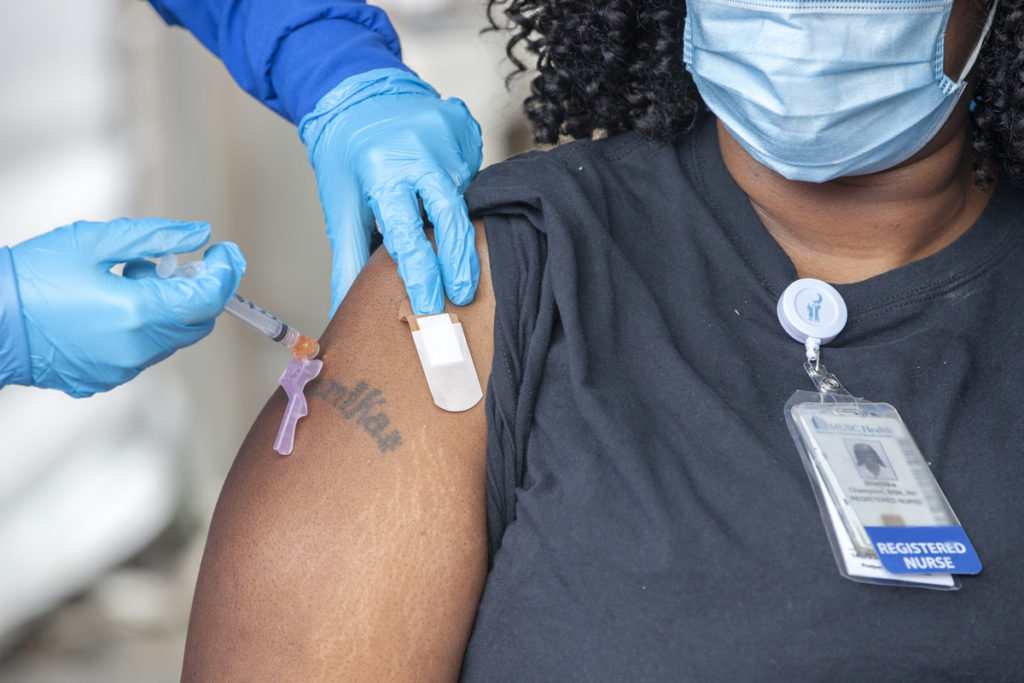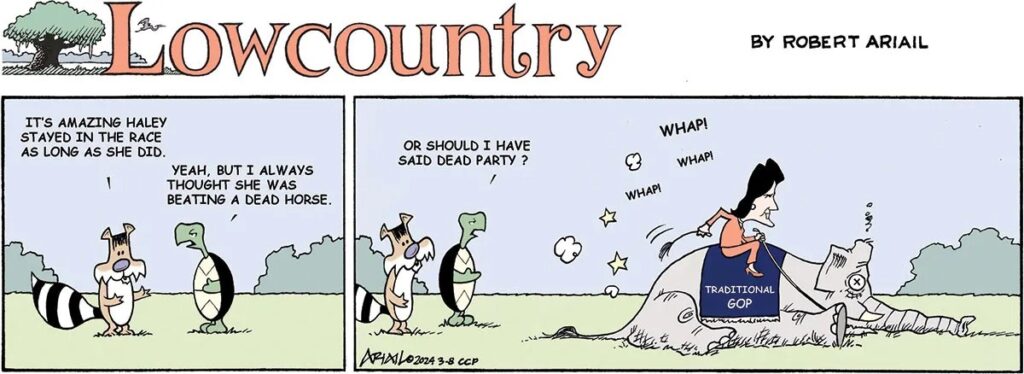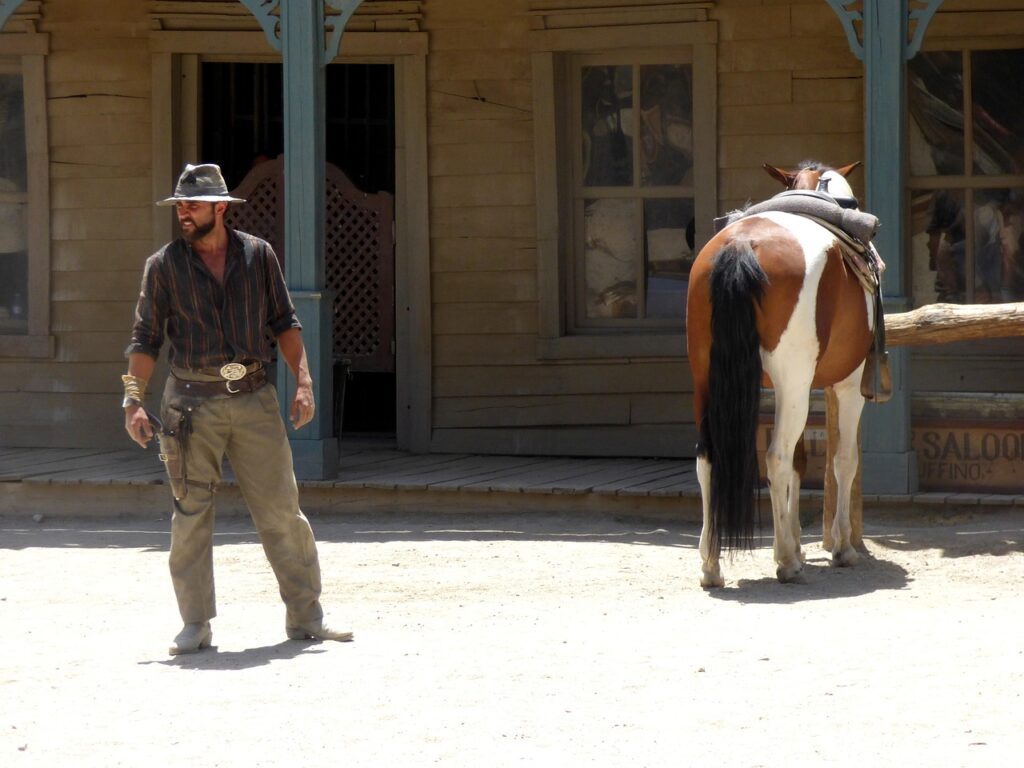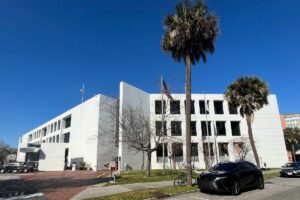STATEHOUSE REPORT | ISSUE 23.10 | March 8, 2024
BIG STORY: Committee to mull anti-vax measure to limit vaccines March 14
MORE NEWS: McMaster signs controversial open gun carry bill into law
LOWCOUNTRY, Ariail: On traditional Republicans
COMMENTARY, Brack: State seems to be turning backwards
SPOTLIGHT: The Felkel Group
MYSTERY PHOTO: A what more than a where
FEEDBACK: On a constitutional convention, cosmetology changes
Committee to mull anti-vax measure March 14

By Jack O’Toole | A state Senate committee on March 14 will consider legislation that would dramatically curtail the authority of state health officials during future public health emergencies, such as pandemics or biological terror attacks.
Dubbed the Medical Freedom Act by supporters, the bill would prohibit the state’s health department from securing and distributing vaccines or other drugs during a public health crisis unless they had received full Food and Drug Administration approval — a complex regulatory process that often takes years.
In 2021, Covid vaccines from Pfizer and Moderna were produced and distributed under an FDA emergency use authorization, which offers streamlined review procedures during declared national health emergencies.
Critics of the legislation, which was approved last week by a Senate subcommittee, say such emergency authorization saved tens of thousands of lives because it got vaccines quickly to people across the country.
The legislation, proposed by conservative Upstate Sen. Shane Martin, would also limit health officials’ power to order and enforce quarantines, restrict the right of pharmacists to refuse to fill prescriptions and outlaw vaccination mandates by private employers for vaccines without full FDA approval.
Debating the merits
Supporters and opponents debated the bill at a Feb. 28 Medical Affairs subcommittee hearing.

“I wanted to do something to protect myself and all the constituents we represent,” Martin, R-Spartanburg, told committee members, citing concerns about the use of “novel” vaccines.
Other supporters of the bill, including committee chairman Sen. Tom Corbin, R-Greenville, referred often to testimony by University of South Carolina biochemist Dr. Phillip Buckhaults, who told an S.C. Senate panel last September that DNA fragments in Pfizer’s mRNA-based vaccine could potentially invade the nucleus of healthy human cells and cause serious health problems, including cancer.
Pfizer strongly disputed those statements in an Oct. 16 letter.
“There is no evidence to support these claims and they provide the risk of being misconstrued by either Committee members and/or the public at large,” wrote Dr. Annaliesa Anderson, senior vice president and chief scientific officer.
Anderson’s letter went on to observe that the issue of DNA fragments is neither new nor unique to Covid vaccines.
“It is important to note that similar quality standards regarding residual DNA are applied to other vaccines. Small amounts of residual DNA can be found in several approved vaccines, including influenza and hepatitis vaccines, which have been administered globally for more than 30 years,” she wrote.
Later that month, a fact check by the University of Pennsylvania’s factcheck.org found Buckhaults’ testimony to be inconsistent with the best available evidence and the views of most experts in the field.
Among those testifying against the bill were S.C. Chamber of Commerce president and CEO Bob Morgan and S.C. Pharmacy Association CEO Brian Clark.
“South Carolina has a long and proud tradition of allowing private sector employers to businesses without excessive government interference,” Morgan told committee members in reference to the bill’s ban on employer vaccine mandates.
“Pharmacists have gone to school for a long time and deserve the right to exercise their best judgment in the best interest of their patients,” Clark said of the legislation’s requirement that pharmacists fill prescriptions that they believe could be harmful.
At the conclusion of testimony, committee members approved the measure 3-2, with Corbin, Sen. Richard Cash, R-Anderson, and Sen. Billy Garrett, R-McCormick, voting yes. Both of the panel’s Democrats, Williamsburg Sen. Ronnie Saab and Charleston Sen. Deon Tedder, voted no.
Also passing along party lines that day was a bill permanently outlawing public employer vaccine mandates, and a resolution calling on the United States to withdraw from the World Health Organization.
- Jack O’Toole reports on statewide issues for Statehouse Report and the Charleston City Paper. Have a comment? Send to: feedback@statehousereport.com.
McMaster signs open gun carry bill into law

By Jack O’Toole | South Carolinians can now lawfully carry handguns, openly or concealed, without training or a permit.
Years of bitter debate over the issue ended Thursday when S.C. Gov. Henry McMaster signed the permitless carry legislation that emerged from the Statehouse earlier this week.
Passage of the bill, dubbed “constitutional carry” by supporters, hinged on a carefully crafted deal that included stiffened penalties for gun crimes and illegal gun possession. With those provisions in place, most S.C. law enforcement officials softened their longstanding opposition to the bill, clearing the way for majority votes in both chambers.
McMaster lauded the legislation’s two-pronged approach in a social media post after Thursday’s signing ceremony.
“With my signature, South Carolina is now the 29th state in the country with constitutional carry,” McMaster wrote. “This bill expands the Second Amendment rights of our law-abiding citizens and will keep violent criminals behind bars with increased penalties for illegal gun use and possession.”
Despite the dealmaking, the legislation still nearly failed last month at the finish line, when House members rejected Senate amendments to further stiffen penalties and encourage voluntary gun training. But with pressure from bill supporters mounting, the House reversed course on Tuesday and accepted most of the Senate’s additions.
The final vote in each body fell largely along party lines, with most Democrats, including Charleston-area Democratic Rep. J.A. Moore, voting no.
“This is just another example of a runaway legislature that has allowed extremists to dictate the agenda, trying to appease the right wing of their party,” Moore told Statehouse Report. “That’s what this bill is all about. It’s not about freedom. It’s about power, and the main focus is staying in office.”
The new law went into effect with the governor’s signature.
Briefs on IVF, energy, abortion, vouchers
![]() Staff reports | In other recent headlines involving the legislature:
Staff reports | In other recent headlines involving the legislature:
S.C. legislators propose bills to protect in-vitro fertilization. South Carolina women, physicians and legislators are vigorously moving to protect fertility care in the Palmetto State in the wake of a Feb. 16 decision by the Alabama Supreme Court to grant personhood to frozen embryos. House Bill 5157 and Senate Bill 1121 in the S.C. General Assembly seek to secure protections for fertility treatments, particularly in vitro fertilization, also known as IVF.
Santee Cooper, Dominion Energy bill mirrors failed legislation. Critics say the South Carolina 10-year Energy Transformation Act mirrors the Base Load Review Act as it involves the same two energy companies, provides for the same energy capacity, allows for roughly the same projected timeline and shields utilities from fiscal liability, The State newspaper reports.
Abortion rights activists seeking signatures for ‘repeal the ban’ petition. Advocates for abortion rights are launching a petition in hopes of showing Republicans that South Carolinians support repealing the six-week abortion ban signed into law last year.
S.C. Supreme Court to determine legality of voucher program. The South Carolina Supreme Court is set to decide whether a law passed last year allowing parents to spend taxpayer money on private schools violates part of the state constitution banning direct aid to anything other than public schools.
Kittredge elected next chief justice of S.C. Supreme Court. The S.C. Legislature unanimously elected John Kittredge chief justice of the state Supreme Court on March 6.
Somber Haley suspends presidential campaign. Former S.C. Gov. Nikki Haley suspended her presidential campaign Wednesday morning in a press conference on Daniel Island. You could almost taste the solemn disappointment in the air as Haley left the race for the Republican nomination, which now has only one candidate — former President Donald Trump, the presumptive nominee.
- Have a comment? Send to: feedback@statehousereport.com.
On traditional Republicans

Award-winning cartoonist Robert Ariail generally has a biting or funny comment about the great state of South Carolina in his weekly cartoon. This week, he offers a cartoon on former Gov. Nikki Haley’s suspended presidential campaign.
- Love the cartoon? Hate it? What do you think: feedback@statehousereport.com.
State seems to be turning backwards

By Andy Brack | It’s already been an odd March in South Carolina. Recent decisions and actions are exacerbating long, deep fissures. Some worry government and the rule of law are broken. Other more conservative voices are wondering why the hell what’s happening took so long.
Just look at these four developments:
 First, consider how the five-member state Supreme Court will be all-White and all-male later this summer when Chief Justice Don Beatty retires after the General Assembly elected Justice John Kittredge, who is White, to succeed Beatty, who is Black.
First, consider how the five-member state Supreme Court will be all-White and all-male later this summer when Chief Justice Don Beatty retires after the General Assembly elected Justice John Kittredge, who is White, to succeed Beatty, who is Black.
“And it’s 2024, not 1924,” state Sen. Mia McLeod, I-Richland, wrote on X. “Let that sink in for a minute.”
Second is the rabid patting-on-the-back among conservatives in the legislature who passed a law allowing gun owners to carry their weapons in public without a permit. Gov. Henry McMaster, normally not the fastest moving of septuagenarians, signed the bill quicker than he can blink, sending the gun lobby into an orgasmic thrall that’s not fit to describe in a family newspaper.
With the measure that has been pushed for more than a decade, South Carolina became the nation’s 29th state to allow open carry of guns without a permit, a move that many moderates believe will ratchet up violence in a state that already has one of the highest rates of gun deaths. Some law enforcement officers believe the open carry law will make it tougher to keep streets safe, as Richland County Sheriff Leon Lott noted after the legislature approved the proposal: “I said a prayer last night that Richland County does not turn into the wild, wild west,” he said. “This is a win for the criminals, who can now walk around with a gun and law enforcement cannot do anything about it.”
Third is the blustery effort by Republicans to rocket more state tax dollars into a small, year-old private school voucher program that rips off money from public schools even before the same Supreme Court has decided whether it’s constitutional. A new bill that headed this week to the House floor calls for removal of program caps and could send a $90 million a year program to soar to as much as $1.4 billion.
“They’re asking you to buy a pig in a poke because you have no idea how much this is going to cost taxpayers in the future,” state Rep. Russell Ott, D-Calhoun, said at a March 5 press conference. “It is an open check.”
Sheesh. Like that’s a good thing for public education.
And speaking of money, here’s the fourth thing – the $1.8 billion “accounting error” that stemmed from an earlier $3.5 billion accounting error.
You read that right. After South Carolina found a $3.5 billion error in the way it reported its revenue balances, which forced the resignation of Comptroller General Richard Eckstrom, a related $1.8 billion reporting error now has been discovered.
The good news is the tax money hasn’t been lost and has, in fact, generated almost $200 million in interest. But the bad news is it has reportedly stayed in a locked transfer account and wasn’t assigned to accounts of state agencies. And because of an apparent change in the way that State Treasurer Curtis Loftis keeps up with the money (or, rather, doesn’t keep up with it), there’s no accurate ledger to show where the money and the interest need to go to.
“In layman’s terms, the issue is equivalent to a private bank being unable to reconcile its customers’ bank accounts to ensure each customer’s account and bank statement have the correct balances,” new Comptroller General Brian Gaines told reporters.
What a mess. Two things need to happen. The state auditor, who reported the new problem, needs to be independent. And the legislature needs to put a constitutional referendum on the November ballot to remove the offices of State Treasurer and Comptroller General from being elected constitutional positions. Instead their functions need to be consolidated, appointed by the governor and confirmed by the Senate so someone can be fired when they screw up.
Andy Brack is editor and publisher of Statehouse Report and the Charleston City Paper. Have a comment? Send to: feedback@statehousereport.com.
The Felkel Group
 The public spiritedness of our underwriters allows us to bring Statehouse Report to you at no cost. This week in the underwriter spotlight is The Felkel Group, a battle-tested public affairs and business development firm that assists corporations, associations and not-for-profits that are serious about their long-term success. The Felkel Group solves problems, crafts and delivers messages, helps organizations to manage crisis, and uses a wealth and breadth of valuable relationships to help to seal deals.
The public spiritedness of our underwriters allows us to bring Statehouse Report to you at no cost. This week in the underwriter spotlight is The Felkel Group, a battle-tested public affairs and business development firm that assists corporations, associations and not-for-profits that are serious about their long-term success. The Felkel Group solves problems, crafts and delivers messages, helps organizations to manage crisis, and uses a wealth and breadth of valuable relationships to help to seal deals.
The Felkel Group is also home to an outstanding advocacy tool called The Rap Index, a powerful intelligence tool that employs sophisticated computer modeling and profiling techniques to help organizations find their most effective advocates. To learn more about The Felkel Group and its Rap Index, go to: http://www.felkelgroup.com.
Here’s a “what” more than a “where”

So take a look at this photo and tell us specifically what it is. If you can give us the where, then you get bonus points. Hint: It’s from the news in recent days. Send your name, hometown and guess to: feedback@statehousereport.com.
 Last week’s photo, “Angles,” showed the Charleston Water System headquarters, another modern building featured in a recent cover story in the Charleston City Paper.
Last week’s photo, “Angles,” showed the Charleston Water System headquarters, another modern building featured in a recent cover story in the Charleston City Paper.
This mystery proved to be harder than expected. Hats off to three stalwarts who got it correct – Allan Peel of San Antonio, Texas; David Lupo of Mount Pleasant; and George Graf of Palmyra, Va.
- Send us a mystery picture. If you have a photo that you believe will stump readers, send it along (but make sure to tell us what it is because it may stump us too!) Send to: feedback@statehousereport.com and mark it as a photo submission. Thanks.
On the risks of a constitutional convention
To the editor:
![]() I understand that the General Assembly is again considering joining a call for a constitutional convention, supposedly limited to fiscal issues (balanced budget, debt ceiling, etc.) It is not at all clear that any such convention could be confined to those issues, based on what happened in 1787.
I understand that the General Assembly is again considering joining a call for a constitutional convention, supposedly limited to fiscal issues (balanced budget, debt ceiling, etc.) It is not at all clear that any such convention could be confined to those issues, based on what happened in 1787.
I am asking our state legislators to carefully consider the possible implications of calling a constitutional convention to revise the U.S. Constitution. Such a convention could lead to serious unintended economic and political consequences. The 1787 Constitutional Convention felt driven to replace the Articles of Confederation with something that enabled the national government to present a united front to our friends and enemies in the rest of the world as a single nation with a single market, a single currency, a single defense, and an adequately funded federal government. That strengthening of the central government enabled an infant nation to emerge as a world power that spoke with one voice.
In a deeply divided nation, such a convention is unlikely to be able to make the necessary compromises that will lead to ratification. It would put at risk some of the basic protections in the Bill of Rights. There is considerable uncertainty about what ground rules the current Congress, much less the Congress to be elected in November, might create for such a convention. For all these reasons, a much safer route would be to pursue an amendment to permit an article-by-article amendment process, as South Carolina did in the 1970s. That approach was a remarkable South Carolina innovation that led to substantial progress on bringing the Constitution into the modern era.
I urge you to reject this radical, unproven and risky process in favor of something more aligned with our own state’s experience in Constitutional revision.
– Holley Ulbrich, Clemson, S.C.
Doesn’t think cosmetology laws need to change
To the editor:
As a salon owner in Charleston since 2005, I would like to say this [new fight over cosmetology laws] is all against our industry . It’s really expensive to have a brick-and-mortar store and to find qualified people to work in it.
Diversity like this takes away from our profession as well as it not being safe for either the stylist or the client. The stylist could be stealing or violating in the client’s home and the same thing this client may abuse or rape or attack the stylist/ makeup person.
We have met the requirements of the state board regarding clean tools, etc. How will this be controlled in a mobile situation? I have put a lot into my career learning and getting extensive classes and product knowledge to keep my business open.
I feel that very many salon owners will feel this way – you spend a fortune training a new stylist and this takes them off the market for brick-and-mortar shops. It is also going to be detrimental to our industry as a whole.
– Name withheld upon request, Charleston, S.C.
Send us your thoughts
We encourage you to send in your thoughts about policy and politics impacting South Carolina. We’ve gotten some letters in the last few weeks – some positive, others nasty. We print non-defamatory comments, but unless you provide your contact information – name and hometown, plus a phone number used only by us for verification – we can’t publish your thoughts.
- Have a comment? Send your letters or comments to: feedback@statehousereport.com. Make sure to provide your contact details (name, hometown and phone number for verification. Letters are limited to 150 words.
- ORDER NOW: Copies are in Lowcountry-area bookstores now, but if you can’t swing by, you can order a copy online today.
- Now available as an e-book!
ABOUT STATEHOUSE REPORT
Statehouse Report, founded in 2001 as a weekly legislative forecast that informs readers about what is going to happen in South Carolina politics and policy, is provided to you at no charge every Friday.
- Editor and publisher: Andy Brack, 843.670.3996
Donate today
We’re proud to offer Statehouse Report for free. For more than a dozen years, we’ve been the go-to place for insightful independent policy and political news and views in the Palmetto State. And we love it as much as you do.
But now, we can use your help. If you’ve been thinking of contributing to Statehouse Report over the years, now would be a great time to contribute as we deal with the crisis. In advance, thank you.
Buy the book
Now you can get a copy of editor and publisher Andy Brack’s We Can Do Better, South Carolina! ($14.99) as a paperback or as a Kindle book ($7.99). . The book of essays offers incisive commentaries by editor and publisher Andy Brack on the American South, the common good, vexing problems for the Palmetto State and interesting South Carolina leaders.
More
- Mailing address: Send inquiries by mail to: P.O. Box 21942, Charleston, SC 29413
- Subscriptions are free: Click to subscribe.
- We hope you’ll keep receiving the great news and information from Statehouse Report, but if you need to unsubscribe, go to the bottom of the weekly email issue and follow the instructions.
- Read our sister publication: Charleston City Paper (every Friday in print; Every day online)
- © 2024, Statehouse Report, a publication of City Paper Publishing, LLC. All rights reserved.


